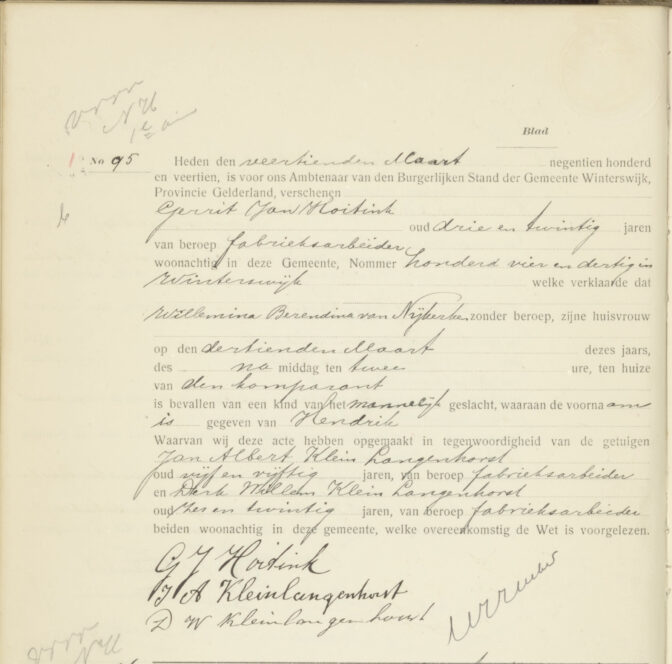When you’re researching, don’t limit your research to national or international websites like Open Archives or Ancestry. Also check the websites of local archives. Every municipality in the Netherlands has a contract with an archive to keep their records. This can either be an archive specific for that one municipality, or a regional archive that keeps the records of multiple municipalities.
Some recent finds I made on websites of local archives:
- Mill tax records of Etten-Leur showed the family composition of my ancestors’ households in the 1600s and 1700s. [West-Brabants Archief]
- Notarial archives showed that one of my client’s ancestors had a child of of wedlock by her employer while working as a maid in 1626. [Amsterdam City Archives]
- Court records of Tilburg showed estate divisions of my ancestors in the 1600s, which I used for my research to prove my line back to Eleanor of Aquitaine. [Regionaal Archief Tilburg]
- My grandparents’ birth records in Winterswijk were scanned in full-color by the local archive. [Erfgoedcentrum Achterhoek en Liemers]
These finds were all made in unindexed records, that are not available in the national or international websites. Archives often provide scanned records that have not been indexed yet.

Birth record of Hendrik Hoitink, born Winterswijk 14 March 1914
Many websites of local archives can be found via the website Digital Resources in Netherlands and Belgium. It has links for online resources for the place of interest, which includes records at local archives.


Daar ben ik het zeker mee eens, er is zoveel bij de lokale archieven, bijvoorbeeld schepenakten, en ik vind het prettiger om daar te kijken dan bij de grote sites, want die zijn soms zo groot, dat niet duidelijk is wat er nu wel en niet instaat; ook geeft het bladeren door de originelen een aardige impressie van de lokale bevolking.